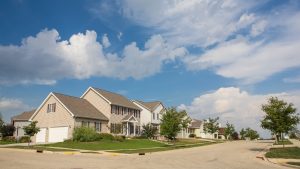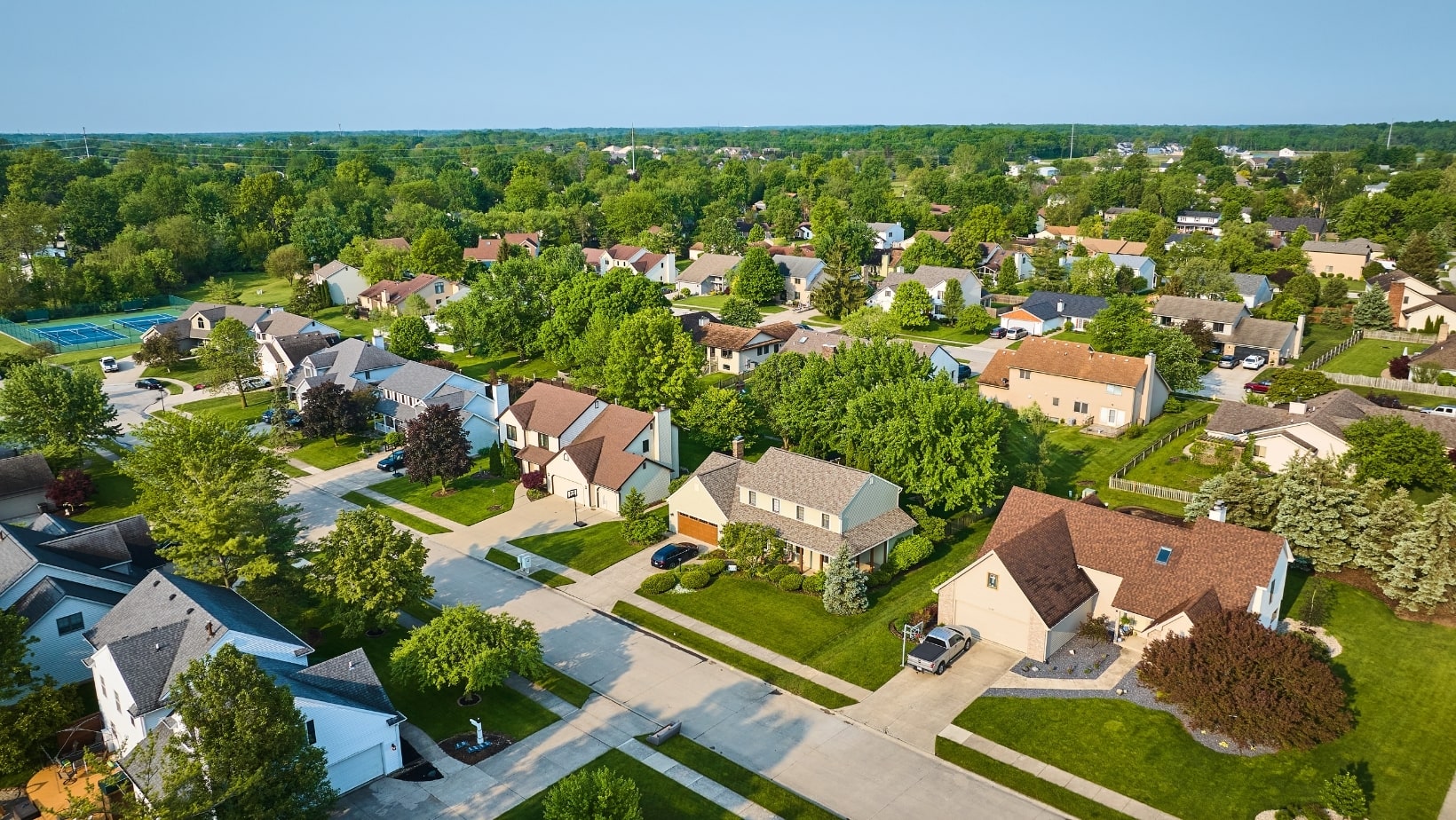Did you know that 30% of the US population lives in a community association? A study by the Community Associations Institute reveals that there are at least 367,000 community associations in the US, housing over 75 million people.
Yet, a staggering 70% of these associations are underfunded, lacking the necessary funds in reserve to pay sudden, hefty repair bills. Why is this such a widespread issue?
Common issues leading to underfunded HOA reserves include poor financial planning, unexpected maintenance costs, or even just plain bad luck.
But what happens when an HOA reserve fund is insufficient? Well, this financial shortfall can spell disaster for homeowners, resulting in unhappy residents. It can lead to steep special assessments and deferred maintenance, that can drive off potential buyers.
But don’t worry—we’ll tell you precisely what you can do in this situation. Keep reading to find out!

Understanding the Problem
Homeowners’ Association (HOA) reserve funds might sound like a dry topic, but they are crucial for the financial health of your community. Let’s dive into why a reserve fund matters and what it means when it’s not adequately funded.
What Are HOA Reserve Funds?
HOA reserve funds are like the association’s emergency savings account. It’s your community’s money set aside for a rainy day to pay for large, unforeseen expenses that regular dues just can’t handle.
Think of them as the financial cushion for your community. Just like you might save up for car repairs or plumbing issues for your house, an HOA saves to cover future expenses to keep the neighborhood in top shape.
We’re talking about things like:
- Roof repairs for shared buildings
- Road maintenance and repaving
- Refurbishment of swimming pools
- Replacement of community amenities like playgrounds or fitness equipment
Without adequate reserves, any major repair or capital improvement could mean unexpected costs for everyone in the community. HOA reserves are crucial because they prevent sudden, hefty assessments on homeowners when these things need fixing.
When Is an HOA Reserve Fund Considered Underfunded?
Now, how do you know if your HOA reserve fund is underfunded? Well, it’s all about the percentage of the necessary amount saved up, called ‘percent funded‘.
If your reserve fund is more than 70% funded, it’s viewed as a well-funded reserve. Anything lower than 70% is considered underfunded, and if it dips below 30%, you’re in even bigger trouble. At this point, you’re in crisis mode, staring at a financial disaster waiting to happen.
Think about it in personal terms: imagine you have a savings goal of $10,000 for emergencies, but you’ve only saved $3,000. This means you’re only 30 percent funded when, ideally, it should be 100 percent, i.e., a fully funded reserve fund.
So, you’re not quite there, and it leaves you vulnerable; you’d be worried about how to cover unexpected expenses.
The same goes for HOAs. Without enough money in reserves, even a minor repair could spell financial chaos for the entire community.

The Aftermath of Underfunded HOA Reserves
It’s a sunny Saturday morning, and you’re all set for a leisurely swim at the community pool. You arrive, towel in hand, only to find a ‘Closed for Maintenance’ sign.
The reason? The pump system failed, and there’s no money to fix it. Frustrating, right? This is the harsh reality when an HOA has underfunded reserves.
But this is just one example of what happens when an HOA reserve fund falls short. The consequences of an underfunded HOA reserve can be quite alarming and affect everyone in the community.
Here are some key issues that can arise and how they affect everyone living in the community:
1. Deferred Maintenance Issues
It all starts subtly with the little things. Maybe the paint on the community center starts to chip, the tennis court surfaces crack, and the beautifully landscaped areas become overgrown and wild.
These visible signs of neglect are the first red flags. When maintenance is constantly put off due to the lack of fund reserves, these minor issues quickly turn into big problems.
Suddenly, the neighborhood doesn’t look so picture-perfect anymore and starts to appear tired and uncared for. Homeowners start noticing the disrepair, and the pride of ownership they once felt about their community begins to fade.
2. Deterioration of Property Value and Appeal
As the neglect continues and the maintenance issues pile up, the impact on property values can be drastic. Prospective buyers driving through the neighborhood see the signs of deterioration and think twice about buying a home here.
I mean… of course, why would someone invest in a community that’s clearly falling apart? This not only affects those looking to sell their homes but also current residents who feel trapped in their investments.
The charm that once drew people to the vibrant community is now overshadowed by the dissatisfaction and loss of appeal.
3. Financial Strain on Homeowners
Here’s where it gets personal. With reserves running low, major repairs or unexpected issues can’t be covered by the HOA’s funds. The solution? Special assessments or emergency fees.
Imagine opening your mailbox to find a letter stating you owe several thousand dollars for urgent plumbing repairs or to fix a broken elevator.
For many homeowners, this kind of unwished-for surprise is a heavy financial burden. It’s not what anyone signed up for when they moved into the community, and it leads to a lot of frustration and resentment.
4. Increased Monthly Fees
To build the reserve funds back up, the HOAs might increase monthly dues. But here’s the kicker — even though residents are paying more, they see little improvement as the additional money is going to the reserves.
It can feel like you’re just throwing money away into a black hole with no visible results in the neighborhood. That’s why high fees with no immediately evident benefits can cause frustration and resentment among homeowners.
Some homeowners might start questioning where their money is going and why the community isn’t getting better. The discontent grows, and trust in the HOA board diminishes.
5. Legal Trouble
If the situation gets really bad, it can escalate even further into legal issues. Frustrated homeowners might sue the HOA for failing to maintain the community or for mismanagement of funds.
Legal battles are not only costly but also incredibly stressful for everyone involved. The lawsuits can drain even more resources and create a toxic environment in the community.
The HOA board members could face serious consequences, and the community could be dragged through lengthy court proceedings.
So, the impact of an underfunded HOA reserve fund goes beyond just a few inconveniences—it’s a domino effect that can lead to bigger problems down the line. When reserves aren’t properly managed, everyone pays the price, one way or another.

How to Asses the Current Reserve Situation?
Imagine you’re steering a ship in uncharted waters, with a crew relying on you to navigate safely. Think of this ship as your HOA and the reserves as the fuel for this ship that powers your community’s future.
Without knowing how much fuel you have or how far it can take you, you’re bound to be left stranded in the rough waters. Similarly, if your HOA reserve fund runs dry, you’re left vulnerable to the unexpected storms of future expenses.
So, how do you ensure your ship stays afloat? The first step is a thorough and honest assessment of your current reserve situation.
This process is a financial necessity to secure peace of mind for everyone living in homeowners associations. It helps you understand where you stand and how to navigate the near future without hitting any out-of-sight icebergs.
Here are some steps to help you get a clear picture of your current reserve funding situation:
Steps To Evaluate the Current State of The Reserve Account
1. Review Financial Statements
First things first, start by dusting off those financial statements. These documents are like a diary of your HOA’s economic past, offering a window into where money has been going and how it’s been managed.
Sifting through the statements isn’t just about crunching numbers; it’s about understanding the narrative of your financial health.
What patterns do you see in historical expenditures? Are there costs that keep cropping up and haven’t been adequately planned for in the annual budget for anticipated expenses?
Maybe you’ll find that the roof repairs that seemed minor were actually a recurring expense that wasn’t fully accounted for. This kind of insight is invaluable.
2. Conduct a Reserve Study
Next, it’s time for an HOA reserve study. Think of this as a detailed health analysis for your HOA reserves. It gives you a comprehensive overview of the future repair and replacement costs for major components within your community.
Imagine trying to plan a cross-country road trip without knowing the condition of your car or the costs of potential repairs along the way. A reserve study is like having a roadmap for your financial planning. Without it, you’re essentially sailing blind, hoping the weather stays calm.
Regular reserve studies help you see the big picture, highlighting what needs attention and when so you can budget accordingly.
3. Hire a Professional
Lastly, don’t be afraid to consider calling in the experts. Bringing in a professional like a financial advisor or a reserve specialist can be a game-changer.
Hiring a professional isn’t just an expense; it’s an investment in your community’s future stability. Their expertise can offer insights that might not be apparent to the untrained eye.
You’ll gain a fresh perspective and make sure that your assessment is thorough and accurate. These seasoned specialists can help you interpret the data from your financial statements and reserve studies, ensuring you make informed decisions.
They will make realistic projections for you and even suggest plans to strengthen your reserves. This way, you can spot potential issues before they become problems and imply strategies to keep your HOA reserve funds healthy.
That’s why it’s always good to have a pro on your side when dealing with complex financial matters.
How to Address Underfunded HOA Reserves?
So, now that you’ve assessed your reserve account, it’s time to make a call—are your HOA reserves underfunded? If not, that’s amazing! If yes, then there’s no need to worry either.
Sure, dealing with underfunded HOA reserve funds can feel like discovering your ship (the community) is taking on water. However, there are several strategies that can help you steer this ship back to safety.
Let’s break it down in a way that makes sense and gets everyone on board.
1. Communicate with Homeowners
Let’s start with the basics: communication. The first step in addressing underfunded reserves is opening up a dialogue with homeowners; it’s crucial. You’ve got to talk to all the association members; being transparent is your key here.
Your homeowner’s association is like a ship, and the HOA board members are the crew. Sometimes, the passengers (or house owners) need to know why the ship is tilting.
Keeping them in the loop helps prevent confusion and builds trust. When everyone knows the game plan, things run smoother without the unnecessary panic.
Here’s how you can achieve this:
- Regular meetings and updates: HOA boards should set up monthly or quarterly meetings to keep everyone informed about the financial situation. You could even send out regular email updates or newsletters.
- Clear and concise explanations: Break down the status of the reserve funding and operating budget in simple terms. Avoid jargon and use charts or graphs to illustrate the numbers. People appreciate straightforward explanations.
- Involve homeowners in decision-making: Get input from homeowners on how to address the shortfall. This can be through surveys, suggestion boxes, or even open forums. When people feel included in the process, they’re more likely to support the decisions made.
2. Increase HOA dues
Now, about the money—yes, it might be time to talk about the not-so-appreciated topic: increasing the fees.
It’s not always welcomed, but sometimes, it becomes necessary, and you’ve just got to bite the bullet and raise the HOA dues for a healthy reserve fund.
Here’s how you can approach it wisely to avoid friction:
- Lay out the reasons thoughtfully: It would sound less daunting if you put it out as a community investment rather than a fee hike.Perhaps the playground equipment is aging, or the sidewalks have gone all uneven, but you have an underfunded HOA reserve. Show how the fee increase will benefit everyone.Remember, it’s not just about asking for more; it’s about explaining the value of their reserve fund contributions.
- Weigh the pros and cons: Be honest about the pros and cons. Increased regular assessments mean a well-funded reserve, but they also put homeowners in a higher financial pinch.Discussing both sides shows that you’ve considered the impact on everyone, and you’ll find that people are more receptive.

3. Implement Special Assessments
When reserve funds are really low, and the association needs immediate funds to cover expenses, special assessments can be the way to go. These are one-time fees collected for specific projects or emergencies.
Special assessments are not always popular, but when there’s a significant, unexpected expense, they can be lifesavers. But before implementing a special assessment, the board should clearly define and communicate it.
This means laying out the details about why it is necessary and how it will be used. Illustrate the need with viable reasons and clear timelines, showing how it prevents larger dues increases in the future.
Examples include unexpected major repairs, like a leaky roof or a cracked foundation, which, if left unattended, could lead to bigger problems.
4. Reduce Unnecessary Expenditures
If increasing the dues or imposing a special assessment doesn’t seem feasible for your association, don’t fret. There’s always another option, and reducing unnecessary expenses is one of them.
Cutting costs can free up money for your reserve fund without asking homeowners for more. This is like lightening the load so your community ship can sail smoother.
Audit your current expenses with a fine-tooth comb. Look for areas where you can trim the fat without compromising the quality of life for residents. This might involve renegotiating contracts with service providers, finding more cost-effective solutions, or eliminating non-essential projects.
Maybe you’ll find that you’re paying for landscaping services during months when growth slows down, or perhaps there’s an opportunity to switch to energy-efficient LED lighting. It’s all about being smart with your spending.
Small changes can add up, providing more breathing room in your budget. Remember, every penny saved is a penny added to your HOA reserve fund.
5. Explore HOA Loan Options
If you have an underfunded HOA reserve fund but none of the above sounds applicable, the best step is to consider an HOA loan. These loans work much like any other loan but are structured to meet the unique needs of HOAs like yours.
HOA loans can pump cash into your reserve fund quickly, giving you the immediate ability to tackle large projects without depleting all your resources at once. Benefits? No undue burden on homeowners to pay for reserve contributions all at once.
- Types of loans available: There are various options, such as lines of credit that you can draw on as needed or fixed-term loans that provide a lump sum. Each has its pros and cons, so it’s worth doing your homework.
- How to apply for an HOA loan: Start by gathering necessary documentation—financial statements, budgets, and reserve studies. Consider working with a lender who specializes in HOA loans. They’ll guide you through the process and help you find the best terms.
6. Maintain Healthy Reserves Going Forward
Finally, look ahead; it’s vital to steer clear of an underfunded HOA reserve fund. Once you’ve tackled the immediate shortfall, focus on long-term health.
Here’s how to keep those savings in good shape with adequate reserve funding:
- Improving budget planning and financial oversight: Regularly review your budget and make adjustments as needed. Consider setting up a finance committee to keep a close eye on things.
- Regularly updating reserve studies: Make sure you’re updating your reserve studies every three to five years. This helps ensure you’re saving enough for future repairs and replacements.
- Implementing long-term financial strategies: Develop a long-term financial plan that includes a consistent reserve funding amount. This might mean setting aside a portion of dues each year specifically for the reserve fund.
- Educating homeowners: Help homeowners understand why reserve fund contributions are important. This can be done through educational sessions, newsletters, or informational materials. When they know what’s at stake, they’re more likely to support the necessary steps to maintain healthy reserves.

Final Verdict
Many HOAs face economic downturns at some point, whether it’s from natural disasters or other unexpected expenses. If there’s no plan in place, underfunded HOA reserves can occur regularly, making it a real struggle to cover unexpected costs in the future.
It’s a vicious cycle that can be tough to break. So, what can you do to break free from this cycle if your HOA reserves are running low?
- First, take a good look at where you stand and get a solid reserve study done.
- Prioritize transparency and communication with homeowners to ensure everyone is on the same page.
- Look for ways to cut costs and boost revenue without putting too much pressure on residents.
- Team up with professional HOA lending specialists. Exploring loan options can provide a healthier financial future and is often a much better option than hitting homeowners with sudden special assessments.
Addressing underfunded reserves quickly is super important. The longer you wait, the worse it gets. So ready to turn things around? Contact us for a consultation and get expert advice on HOA loan financing.
Let’s work together to make your community stable and prosperous with fully funded reserves!



